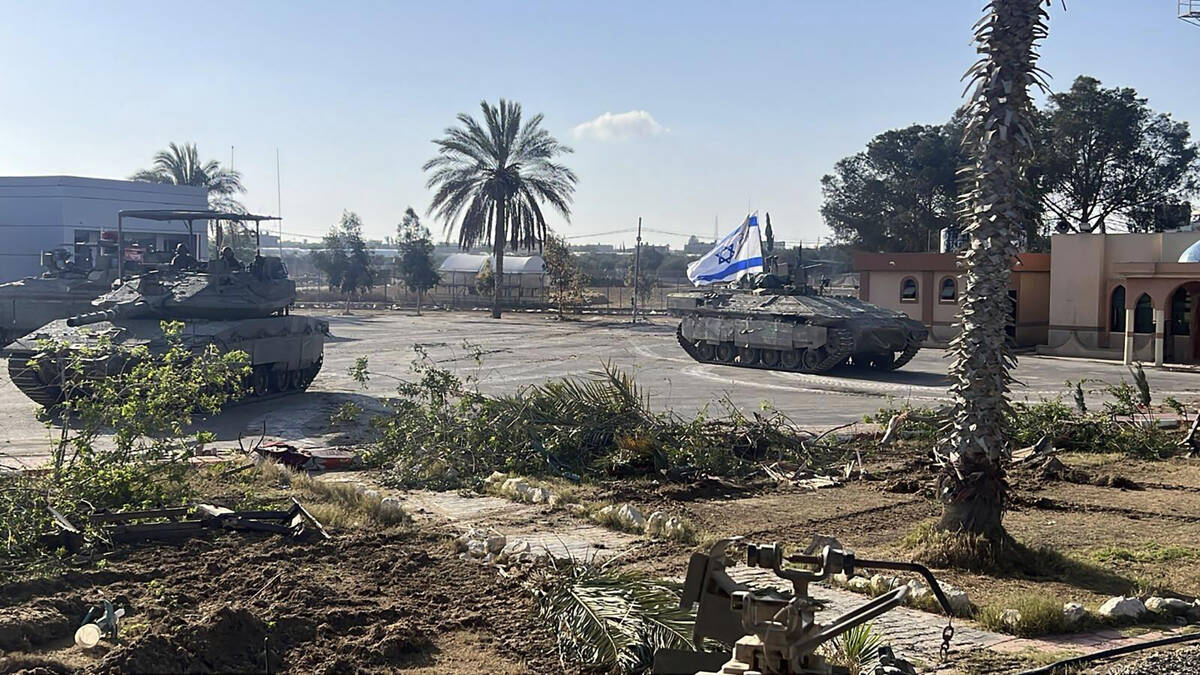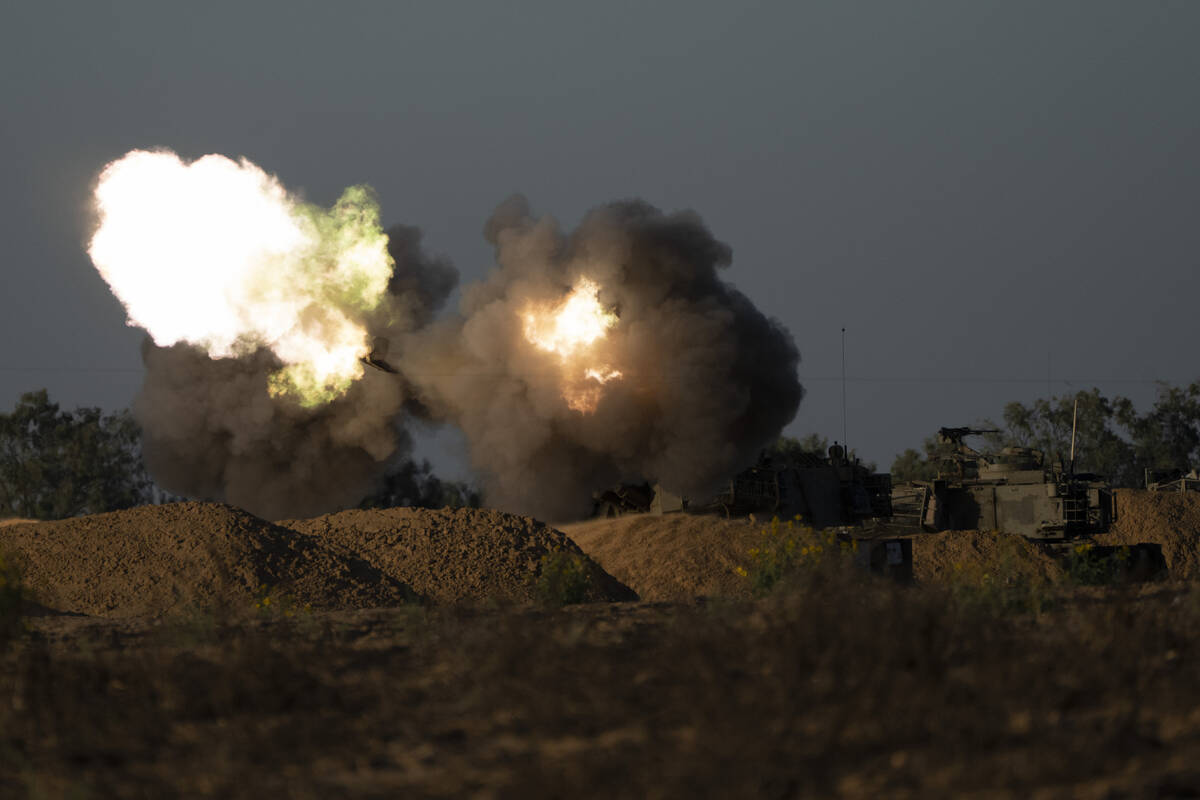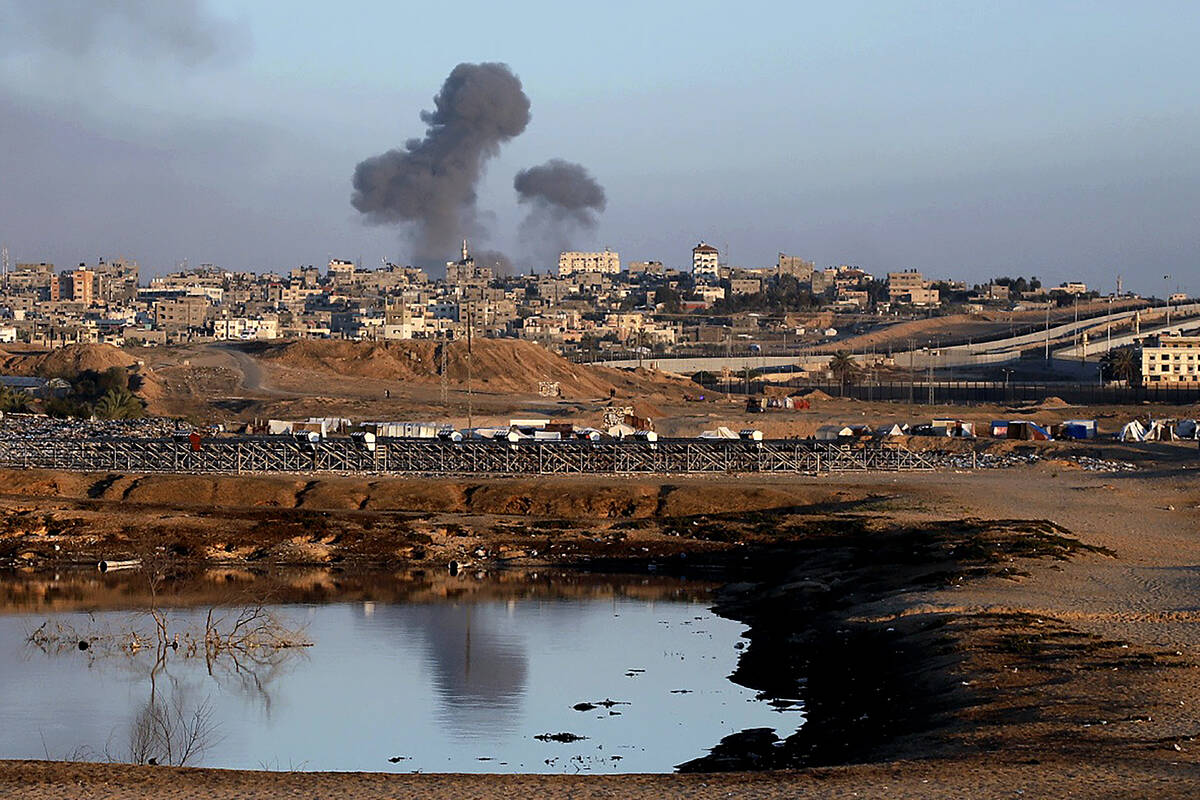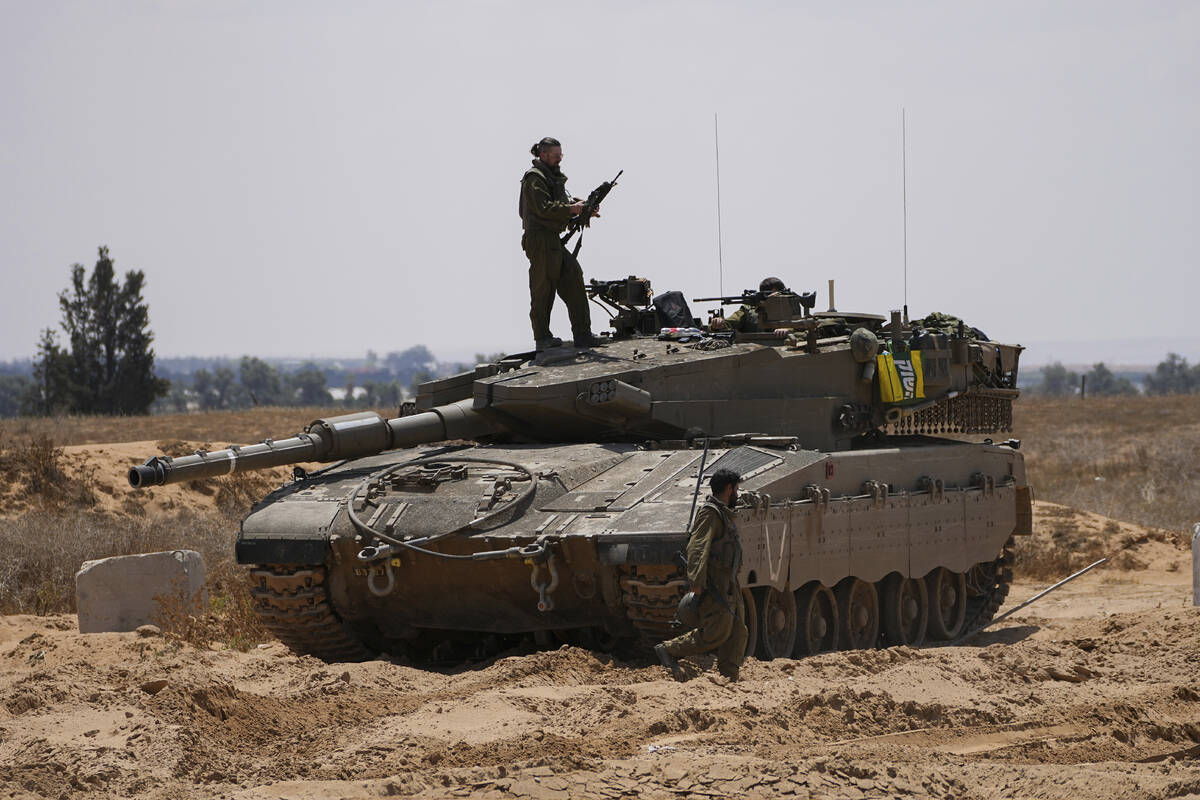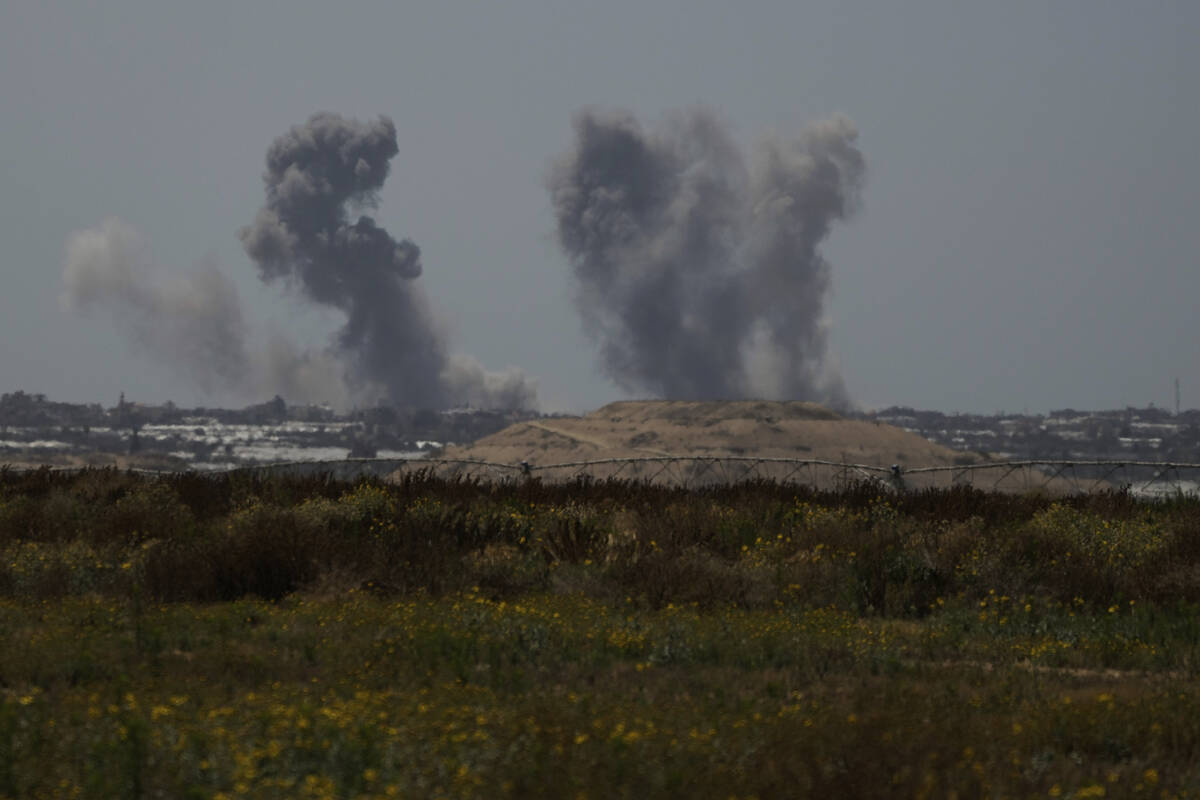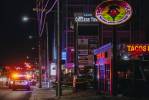Israeli forces seize Rafah crossing in Gaza
CAIRO — Israeli troops seized control of Gaza’s Rafah border crossing on Tuesday in what the White House described as a limited operation.
By capturing the Rafah crossing, Israel gained full control over the entry and exit of people and goods for the first time since it withdrew soldiers and settlers from Gaza in 2005, though it has long maintained a blockade of the coastal enclave in cooperation with Egypt.
Israeli Prime Minister Benjamin Netanyahu called the capture of the crossing an “important step” toward dismantling Hamas’ military and governing capabilities, and Defense Minister Yoav Gallant said Israel would “deepen” the Rafah operation if the talks on the hostage deal failed.
White House National Security Council spokesman John Kirby said the operation along the Gaza-Egypt border in eastern Rafah was not a full-on invasion of the city that President Joe Biden has repeatedly warned against on humanitarian grounds.
He said Israel had described it as “an operation of limited scale and duration” aimed at cutting off Hamas arms smuggling.
The U.N. warned of a potential collapse of the flow of aid to Palestinians from the closure of Rafah and the other main crossing into Gaza, Kerem Shalom.
Hours of whiplash
The Israeli foray overnight came after hours of whiplash in the now 7-month-old Israel-Hamas war, with the terrorist group saying Monday it accepted a cease-fire proposal that Israel insisted fell short of its core demands.
The high-stakes diplomatic moves and military brinkmanship left a glimmer of hope alive for a deal to bring at least a pause in the war.
An Egyptian official and a Western diplomat said the draft Hamas accepted had only minor changes in wording from a version the U.S. had earlier pushed for with Israeli approval. The changes were made in consultation with CIA chief William Burns, who embraced the draft before sending it to Hamas, they said, speaking on condition of anonymity to discuss the deliberations.
The White House said Burns was discussing the Hamas response with the Israelis and other regional officials.
According to a copy released by Hamas, the proposal outlines a phased release of the hostages alongside gradual withdrawal of Israeli troops from the entire enclave and ending with a “sustainable calm,” defined as a “permanent cessation of military and hostile operations.”
U.S.-Israeli rift
The looming operation threatens to widen a rift between Israel and its main backer, the United States.
Biden warned Netanyahu again Monday against launching an invasion of the city after Israel ordered 100,000 Palestinians to evacuate from parts of Rafah. But Netanyahu’s coalition partners have threatened to bring down his government if he calls off the offensive or makes too many concessions in cease-fire talks.
Palestinians’ cheers of joy over Hamas’ acceptance of the cease-fire deal turned to fear Tuesday.
Families of the hostages also saw their hope turn to despair. Rotem Cooper, whose 85-year-old father, Amiram, was among scores abducted during Hamas’ Oct. 7 terrorist attack, slammed what he said was the government’s inaction on a deal.
“We see all sorts of explanations — this isn’t the deal that we gave them, Hamas changed it without saying something,” Cooper said at a parliamentary hearing Tuesday. He questioned whether military pressure was an effective bargaining tactic.
‘Operational control’
Israel’s 401st Brigade took “operational control” of the Gaza side of the Rafah crossing early Tuesday, the military said.
Military footage showed Israeli flags flying from tanks in the area. It also said troops and airstrikes targeted suspected Hamas positions in Rafah.
The military said it had intelligence the crossing was “being used for terrorist purposes.” It said Hamas fighters near the crossing launched a mortar attack that killed four Israeli troops near Kerem Shalom on Sunday and that more mortars and rockets were fired from the area Tuesday.
Hamas said its fighters clashed with Israeli troops barricaded in a building in Rafah and that it fired rockets on a military facility close to Kerem Shalom.
Fighting forced the evacuation of the Abu Youssef al-Najjar Hospital, one of the main medical centers receiving people wounded in airstrikes on Rafah in recent weeks. It was not immediately clear how many patients had been moved to other facilities.
The Rafah crossing with Egypt and the Kerem Shalom crossing with Israel are critical entry points for food, medicine and other supplies. They have been closed for at least the past two days, though the smaller Erez crossing between Israel and northern Gaza continues to operate.
Israeli authorities denied the U.N. humanitarian affairs office access to the Rafah crossing Tuesday, said its spokesman, Jens Laerke, warning the disruption could break the fragile aid operation. All fuel for aid trucks and generators comes through Rafah, and Laerke said there was a “very, very short buffer of about one day of fuel.”
Egypt condemns seizure
Egypt’s Foreign Ministry condemned the seizure of the crossing, calling it “a dangerous escalation.”
Egypt has previously warned that any seizure of Rafah — which is supposed to be part of a demilitarized border zone — or an attack that forces Palestinians to flee into Egypt would threaten the 1979 peace treaty with Israel that’s been a linchpin for regional security.
Netanyahu has said an offensive to take Rafah — which Israel says is Hamas’ last major stronghold in Gaza — is crucial to destroying Hamas after its Oct. 7 terrorist attack on southern Israel that triggered the war. In that unprecedented raid, Hamas and other terrorists killed some 1,200 people, mostly civilians, and took around 250 hostages.
Israel’s retaliatory bombardment and ground offensives in Gaza have killed more than 34,700 Palestinians, according to the Hamas-run Health Ministry in Gaza. The tally doesn’t distinguish between civilians and combatants.
The United States, Egypt and Qatar have spent months trying to broker an agreement on a cease-fire and the release of the estimated 100 hostages and remains of 30 others still held by Hamas, which insists it will not release them unless Israel ends the war and withdraws from Gaza.
Netanyahu and other top officials have publicly rejected those demands, saying they plan to resume the offensive after any hostage release and continue it until Hamas is destroyed. For now, the hostages serve as Hamas’ strongest bargaining chip and potential human shields for its leaders.
Israel said the cease-fire proposal that Hamas agreed to did not meet its “core demands.” But it said it would send a delegation to Egypt to continue negotiations. An Egyptian official said delegations from Hamas and Qatar arrived in Cairo on Tuesday.
Lidman reported from Jerusalem. Associated Press journalists Ashraf Sweilam in el-Arish, Egypt, and Abby Sewell in Beirut contributed to this report.



